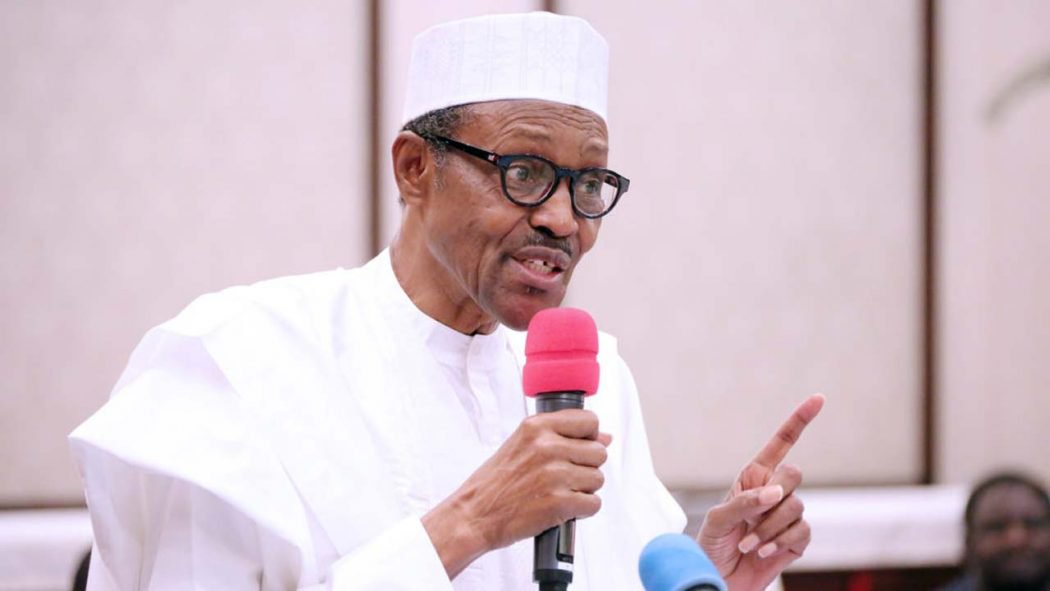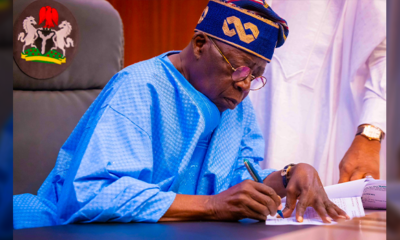Latest News
The unfortunate attack of Punch by Daily Trust (Opinion)

By Farooq Kperogi
My column on the back page of the Nigerian Tribune on Saturday. Enjoy: A meta-editorial is an editorial about an editorial, which is both bizarre and unprofessional in journalism. But Daily Trust wrote one about the Punch Newspaper’s widely and rapidly shared December 11, 2019 editorial titled, “Buhari’s lawlessness: Our stand.”
On December 19, Daily Trust, which has now positioned itself as an extension of Lai Mohammed’s Ministry of Information and Pro-regime Propaganda, counterposed Punch’s editorial in an editorial titled “That PUNCH editorial.” As an alumnus of Daily Trust, I was mortified, but not altogether surprised, by the unprofessionalism and ignorance of the meta-editorial.
The Daily Trust said “PUNCH went overboard” in describing “an elected government as a ‘regime’ and to refuse to recognize the president by his statutory title.” It characterized this as “an attempt to delegitimise an elected president and the government he heads.” This is both uninformed and inaccurate.
Punch’s editorial doesn’t say it “will refuse to recognize the president by his statutory title.” It actually addresses him as “the president, Major General Muhammadu Buhari.” That’s tame. I think it doesn’t go far enough in calling attention to Buhari’s moral illegitimacy. I took a decision to never address him as president after May 29 because he unquestionably stole the 2019 election. Whenever it’s morphologically inevitable to use the term “president” when I talk about him, I insert scare quotes around it.
So contrary to Daily Trust’s claim in its meta-editorial, Punch calls Buhari “president”; it just doesn’t deploy the term as a titular prefix to his name.
Again, the Daily Trust meta-editorial betrayed insufficient familiarity with the semantic and pragmatic boundaries of the term “regime.” Although there’s undeniably an undertone of disparagement in calling a government a regime, the term is polysemic and isn’t even strong enough to describe Buhari’s fascist absolutism.
Here is the notation for “regime” in The Associated Press Stylebook, the most widely used style guide in American newsrooms and that journalism professors use to teach students: “The word regime is a synonym for political system: a democratic regime, an authoritarian regime. It may also mean the period in which a person or system was in power, often with a negative connotation: Gadhafi’s regime, the Nazi regime.”
A junta is different from a regime. The Associated Press Stylebook defines a junta as “a group or council that often rules after a coup: a military junta controls the nation. A junta becomes a government after it establishes a system of political administration.”
What Punch should have called the Buhari autocracy is a “junta” to signpost its military-style descent into the low-water mark of lawlessness. The Daily Trust would then at least be defending Buhari from a position of knowledge.
At any rate, as I pointed out on social media in my widely shared preliminary response to Daily Trust, the decision to prefix “Major General” instead of “president” to Buhari’s name and to call the government he heads a “regime” is merely a stylistic choice, which newspapers all over the world exercise regularly.
The Associated Press, the New York Times, the Washington Post, and all other major newspapers in the world update their style guides every year—and publish the changes for public consumption—in response to changes in language use and in the political environment. It’s a newspaper’s inviolable prerogative to tweak its style guide.
And how does a newspaper’s stylistic choice to signalize the habitual subversion of democratic ethos by a government, which Daily Trust itself grudgingly conceded, “delegitimize” the government? That’s woolly reasoning. A newspaper has no judicial power to confer or withhold legitimacy on any government. Buhari won’t cease to be “president” because the Punch calls him a “Major General.” Nor will Nigerians stop to recognize the government he pretends to head because the Punch calls it a “regime.” Newspapers are not the conferrers of “legitimacy.”
Instead of writing an editorial about another newspaper’s editorial, why not write your own independent editorial to lend symbolic authority to your favorite tyrant’s autocracy? Punch may be Nigeria’s most widely read newspaper but isn’t THE Newspaper of Nigeria; it’s one of several newspapers in the country. Why fixate on what it chooses to do with its symbolic resources?
It bespeaks crippling professional insecurity, even deep-seated inferiority complex, for one newspaper to take another’s editorial seriously enough to respond to it in an editorial.
Most important, though, this is particularly hypocritical coming from a newspaper that stopped my column for no other reason than that it said I was too consistently censorious of the Buhari regime’s failings. Before then, I had received several official communications from the Editor-in-Chief subtly and not too subtly importuning me to either stop writing about Buhari or to “tone down” the stridency of my critiques of his regime. That’s a worse betrayal of the basic principles of journalistic integrity than Daily Trust is incorrectly accusing Punch of.
For instance, a memo I received from Daily Trust’s Editor-in-Chief on May 17, 2018 titled “Reminder on Column Writing” discouraged “elegance of prose” and “heavy criticisms” and requested columnists to not “use derogatory or abusive language which could irritate and provoke those you criticize in your pieces,” among other puzzlingly barefaced attempts to police the thoughts and erase the stylistic identities of columnists.
In his call to tell me my column had been stopped in late 2018, the Editor-in-Chief was frank enough to confess that those priceless gems of wisdom were directed at me and were meant to protect Buhari and his government from my unceasingly critical scrutiny. Note that no such memos were ever sent to columnists when Obasanjo, Yar’adua, and Jonathan held sway—and whom I didn’t spare.
It’s obvious that the authors of the memo have zero understanding of what a newspaper column means. There’s nowhere in the world that newspaper columnists are told how to write and how not to write, what to write about and what not to write about. That’s offensively unprofessional infantilization of accomplished professionals.
Each time I read the “guidelines,” which used to be sent every few months, I always felt like I was in kindergarten—or, more appropriately, that a kindergartner was teaching me a subject I had a PhD in. I frankly would have left on my own even if my column hadn’t been stopped. It had become clear to me that Daily Trust was no longer a legitimate newspaper that provided a space for a broad diversity of viewpoints; it’s now a pro-regime propaganda house irrevocably committed to featherbedding Buhari’s ferociously escalating monocracy.
In the service of this agenda, the paper has had occasions to refuse to publish columns that it considered too critical of the Buhari regime. Let me give just one recent example.
Sonala Olumhense is a storied, fearless, evenhanded, widely read syndicated columnist whose Sunday column Daily Trust has been publishing since Goodluck Jonathan was in power, perhaps because he used to be very critical of Jonathan even though they’re both from the same geo-cultural region. (In other words, Daily Trust likes people who’re critical of “their own,” but resents me for being critical of “my own.”)
Olumhense’s December 1 column titled “As nepotism soldiers on” only appeared in the Punch; Daily Trust declined to publish it because it’s a witheringly searing critique of Buhari’s growing, unprecedented nepotism, which I wrote about in my November 23, 2019 column titled “Government of Buhari’s Family, By His Family, and For His Family.” Daily Trust couldn’t stomach it. This has happened to other columnists, such as gifted satirist Tunde Asaju who has been instructed not to write about Buhari’s family again and to discontinue his brilliantly witty, irreverent anti-regime satire.
A newspaper with such compromised standards has no moral right to preach to another paper about professional journalistic neutrality—or about journalism at all. Daily Trust’s practice of telling its columnists what to write and how to write is one of the most audaciously egregious vandalism of journalistic ethics I’ve ever encountered anywhere in the world.
Daily Trust’s motto used to be, “Trust is a burden.” Obviously, over time, the burden of trust became too ponderous for it to shoulder, so it dropped it like it’s hot. Now it wants every newspaper in Nigeria, including the Punch, to be like it: a servile, ignorant, unreflective, and uncritical comforter of fascism. Read more at

























